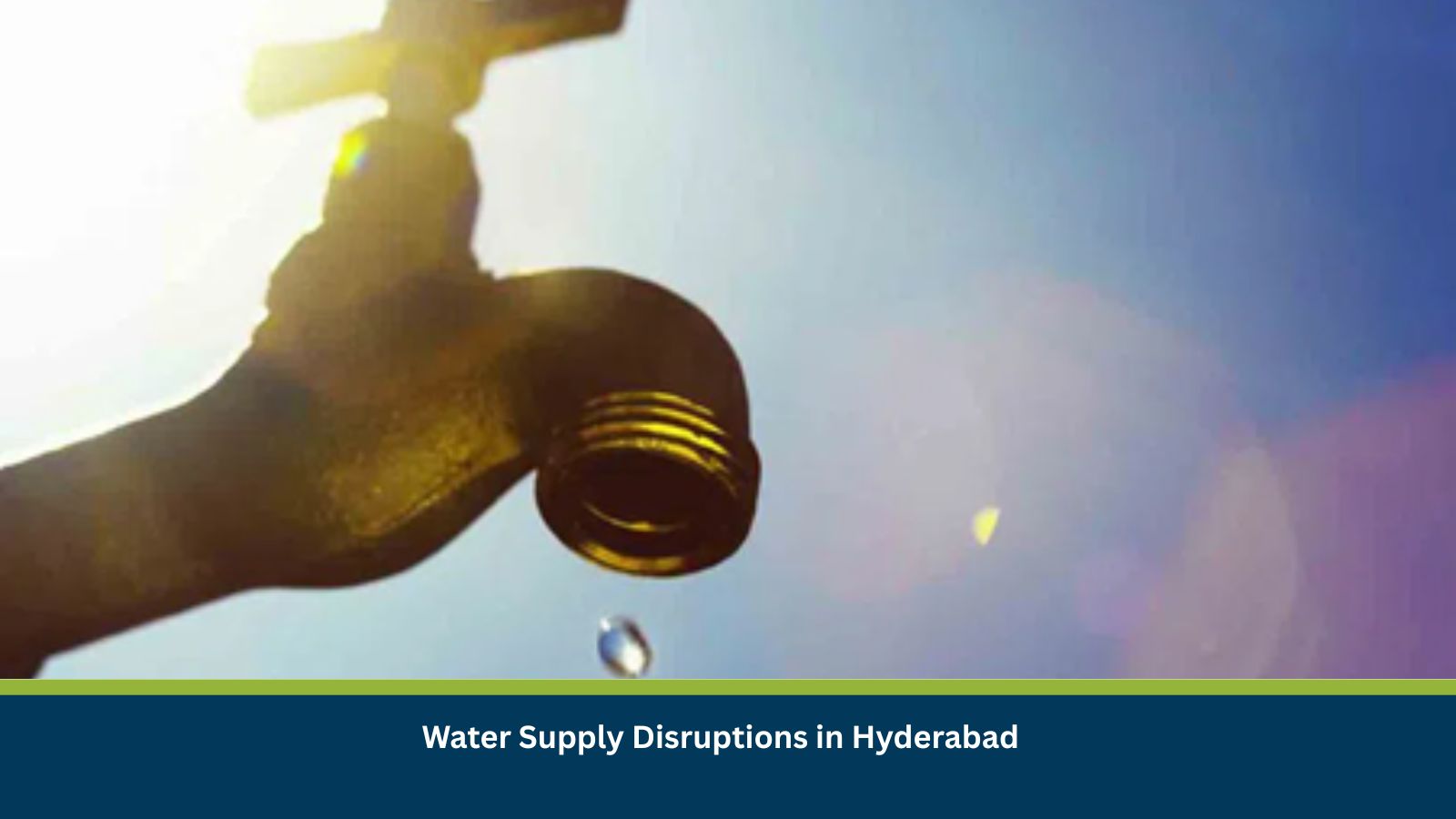What Is Risk Analysis in the Context of Critical Infrastructure Events
Critical infrastructure risk analysis assesses vulnerabilities in essential public systems, such as power, water, and communications, that support urban functionality and economic stability. In Hyderabad, frequent water supply interruptions from pipeline damage, maintenance, or leakages underscore systemic stress within the city’s utility framework. Past disruptions, often lasting 24–48 hours, have impacted residential areas, industrial clusters, and commercial establishments, highlighting dependencies on municipal water infrastructure. Such events emphasize the importance of resilience measures, effective public communication, and contingency planning to maintain continuity in essential services.
Executive Summary
- Date of Event: 13 November 2025
- Location: Hyderabad, Telangana, India
- Risk Category: Critical Infrastructure
- Severity Score: 4 / 5
- Confidence Level: 90 %
A major pipeline leak has disrupted water supply in several key localities of Hyderabad, including Patigadda, Mekalamandi, Mahendra Hills Reservoir, MES, Railways and Cantonment, Hasmathpet, and Balanaga. The Hyderabad Metropolitan Water Supply and Sewerage Board (HMWSSB) has initiated emergency repairs, estimating restoration within 24–48 hours. The disruption’s severity stems from its impact on domestic and commercial users, potential hygiene concerns, and strain on water distribution logistics. While routine in nature, the scale and location of this incident elevate its operational significance.
Current Updates
As of 13 November, HMWSSB teams are conducting intensive repair operations on the affected main pipeline. Water tankers have been mobilized to maintain minimum supply to critical institutions and residential areas. Public advisories urge conservation, with full restoration expected by late 13 November barring unforeseen complications.
Known Hotspots and Sensitive Areas
- High Impact: Vanasthalipuram, Autonagar, Vaishalinagar, Nagole, Badangpet, Lenin Nagar, and ARCI Balapur Reservoir.
- Medium Impact: Barkas, Maisaram, Ellugutta Reservoir, Tarnaka, Buddh Nagar, Lalapet, and Maredpally.
- Low Impact: Prakashnagar, Patigadda, Mekalamandi, Mahendra Hills Reservoir, MES, Railways and Cantonment, Hasmathpet, and Balanagar.
Hospitals, schools, and hospitality facilities in these zones are classified as priority consumers for emergency tanker deployment.
Impact on Transportation and Services
- Utilities: Complete service disruption in multiple neighborhoods; risk of extended outage if additional pipeline damage is detected.
- Transport: Increased traffic congestion anticipated along repair corridors due to heavy equipment and tanker movement.
- Public Services: Minor disruption to municipal sanitation and cooling systems in large commercial complexes.
- Business Operations: Water-dependent sectors—such as hotels, restaurants, laundries, and manufacturing—will experience productivity declines or temporary closures.
Recommended Actions
- Operational Preparedness: Activate 24–48 hour emergency water reserves for essential use and sanitation. Engage HMWSSB-certified water tanker vendors to ensure uninterrupted supply.
- Employee Welfare: Enable flexible or remote work for non-essential staff; ensure sufficient stock of bottled water and hygiene products across offices and facilities.
- Business Continuity: Identify and temporarily suspend non-critical, water-intensive operations; verify functionality of fire safety systems dependent on water pressure.
- Stakeholder Communication: Issue clear advisories to employees, customers, and vendors regarding potential delays and mitigation efforts; maintain transparency to sustain trust.
- Long-term Mitigation: Review facility-level water resilience measures, such as on-site storage, rainwater harvesting, and redundancy planning, to reduce future exposure.
Multidimensional Impact
The incident underscores Hyderabad’s recurring vulnerabilities to infrastructure stress. While short-term inconvenience dominates the risk landscape, extended disruption could impact sanitation, public sentiment, and commercial activity. Secondary effects include increased plastic waste from bottled water and localized traffic congestion due to tanker operations. Broader systemic implications remain contained within the municipal boundary.
Emergency Contacts
- HMWSSB (Hyderabad Metropolitan Water Supply & Sewerage Board): 040- 23300114 / https://www.hyderabadwater.gov.in/en/
- Greater Hyderabad Municipal Corporation (GHMC): 040 2111 1111
- Telangana State Disaster Response & Fire Services: 101
- Police / Ambulance / Medical Emergencies: 100 / 108
- Real-Time Updates: @HMWSSBOnline (X, formerly Twitter)
Final Thoughts
The Hyderabad water supply disruption presents a critical yet localized infrastructure challenge. While authorities are executing prompt corrective measures, the event highlights persistent urban risks from utility dependence and delayed infrastructure modernization. Businesses should leverage this event as a stress test for contingency readiness, ensuring emergency reserves, diversified sourcing, and clear communication frameworks. Stay ahead of operational risks with real-time alerts, scenario modeling, and expert advisories with datasurfr’s Predict. Start your 14-day free trial of Datasurfr’s Risk Intelligence Platform today.






